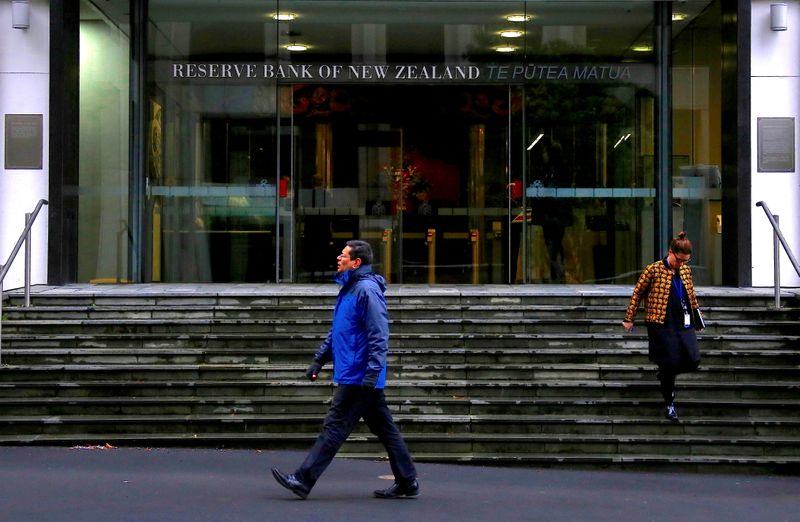WELLINGTON (Reuters) - New Zealand's central bank said on Tuesday that it plans to reduce its exposure to bonds from countries like Australia that have a higher carbon footprint, as it outlined action to manage the economic risks associated with climate change.
The Reserve Bank of New Zealand's (RBNZ) carbon footprint in its balance-sheet is above a simple benchmark of a G7 weighted bond holding because it holds more Australian and Canadian bonds, Governor Adrian Orr said in a news conference to launch its 2021 Climate Change report.
Orr said the bank gets higher yields from Canadian or Australian bonds than it does elsewhere.
"So yes, we would need to think hard around how we can achieve the same effectiveness in our balance with a lower footprint," Orr said.
"That's exactly the choice facing so many investors globally right now," he said.
Orr pointed out that the Swedish central bank sold off bonds https://www.reuters.com/article/us-canada-bonds-sweden-idUSKBN1XN2O9 from the oil-rich Canadian province of Alberta and parts of Australia in 2019 because it felt that greenhouse gas emissions in both countries were too high.
Reserve Bank of Australia (RBA) Deputy Governor Guy Debelle warned earlier this month that Australia could face rising costs of capital and divestment by offshore funds if it is not seen to be doing more to address climate change.
Orr said RBNZ will look to be more proactive and consider investing more in green bonds.

"There is nothing stopping us from receiving green bonds and nothing stopping institutions from issuing more green bonds that we could receive," Orr said.
RBNZ invested https://www.reuters.com/article/newzealand-economy-rbnz-idINL2N2NK009 US$100 million in the Bank for International Settlements’ U.S. dollar Green Bond Fund in 2019.